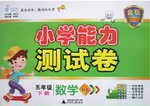题目内容
C
The questions of what children learn, and how they should learn it, is continually being debated and reheated. Nobody dares any longer to defend the old system, the parrot – fashion (way of learning by repeating what others say) of learning lessons, the grammar with a whip system,which was good enough for our grandparents.The theories of modern psychology have stepped into argue that we must understand the needs of children.Children are not just small adults;they are children who must be respected as such.
Well,you may say,this is as it should be,and a good idea.But think further.What happens?
‘Education’ becomes the responsibility not of teachers, but of psychologists.What happens then? Teachers worry too much about the psychological implications of their lessons,and forget about the subjects themselves.If a child dislikes a lesson,the teacher feels that it is his fault,not the child’s. So teachers worry whether history is ‘relevant’ to modem young children.And do they dare to recount stories about violent battles? Or will this make the children themselves violent? Can they tell their classes about children of different races,or will this encourage racial hatred? Why teach children to write grammatical sentences? Verbal expression is better.Sums? Arithmetic? No:real—life mathematical situations are more understandable.
You see.you can go too far.Influenced by educational theorists,who have nothing better to do than write books about their ideas,teachers leave their teacher—training colleges filled with grand,psychological ideas about children and their needs. They make complicated preparations and try out their ‘modern methods’ on the long – suffering children. Since one ‘modern method’ rapidly replaces another, the poor kids will have well been fed up by the time they leave school. frequently the modern methods are so complicated that they fail to be understood by the teachers, let alone the children; even more often, the relaxed discipline so necessary for the ‘informal’ feeling the class must have, prevents all but a handful of children from learning anything.
63.Under the old system, children were .
A.made to learn passively B.good enough to their grandparents
C.made to learn actively D.understood and respected by teachers
64.What happens when teachers pay too much attention to the psychological implications during a lesson?
A.They find that children dislike the lessons.
B.They worry too much about history, stories, racial hatred, grammar and arithmetic.
C.They don’t pay enough attention to what students are learning.
D.They tend to blame students for their failure in teaching.
65.How do you understand the underlined sentence at the end of the passage?
A.Children will learn well in a relaxed classroom atmosphere.
B.Few children will actually learn when there is no discipline.
C.Relaxed discipline is necessary for children to develop.
D.No children will learn anything without strict discipline.
66.What is the author’s attitude toward the theories of modern psychology?
A.Indifferent (不关心的). B.Tolerant (容忍的).
C.Supportive (支持的). D.Critical (批评的).
63---66 ACBD

 小学能力测试卷系列答案
小学能力测试卷系列答案
| |||||||||||||||||||||||||||||||||||||||||||||||||||||||||||||||||||||||||||||||||||||||||||||||||||||||||||||||||||||||||||||||||||||||||||||||||||||||||||||||||||||||||||||||||||||||||||||||||||||||||||||||||||||||||||||||||||||||||||||||||||||||||||||||||||||||||||||||||||||||||||